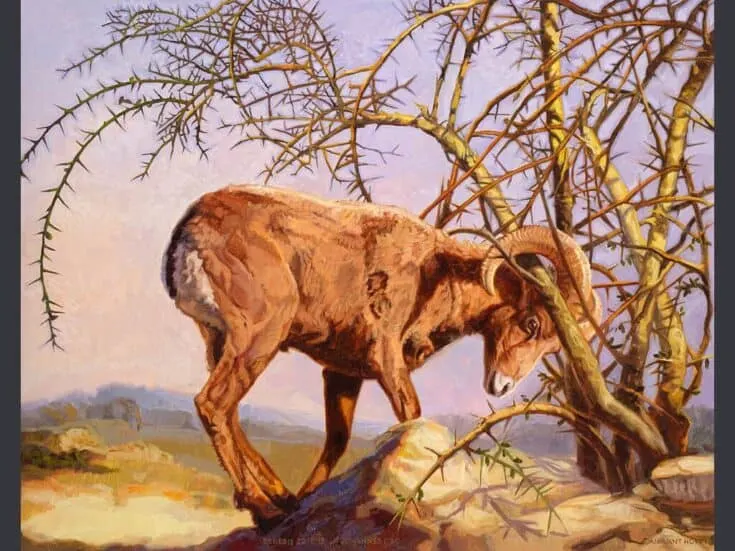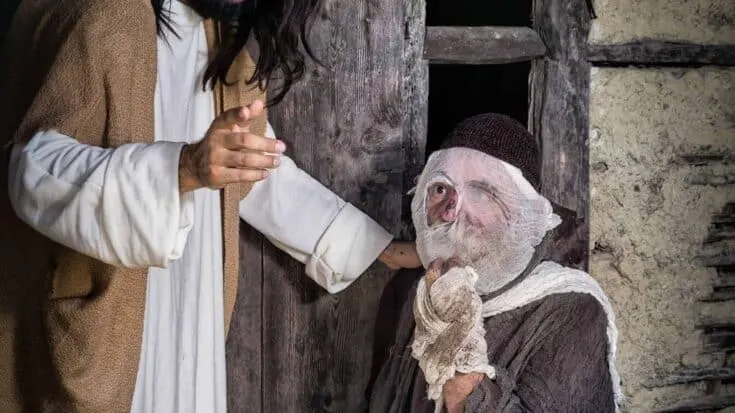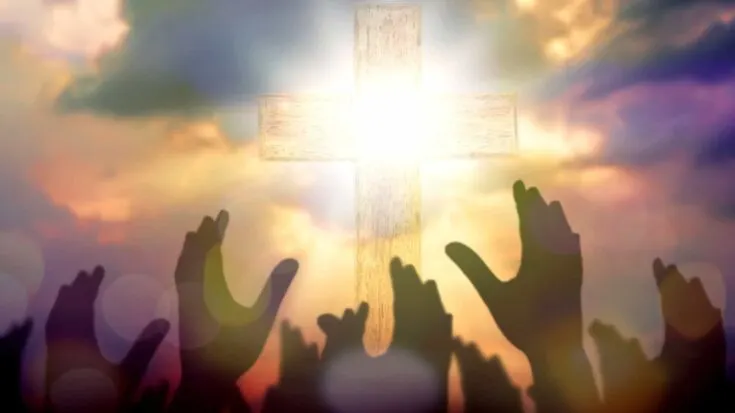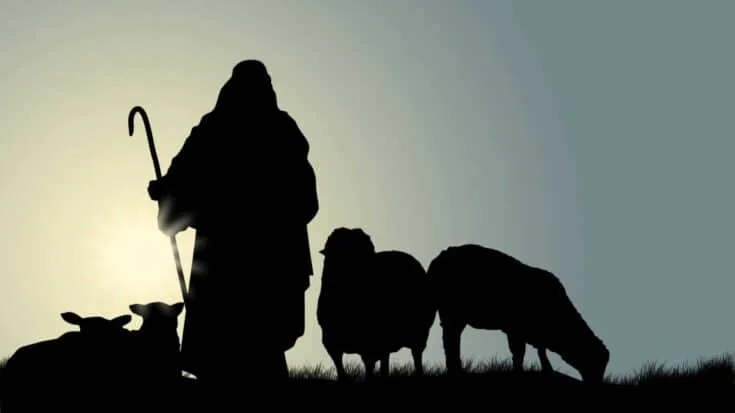In this article, we will continue our study of the names of God. This time focusing on His name El Olam, the everlasting God, and what that means and how we can learn some life lessons from Him being everlasting. So, grab your Bible, and let’s dig in…
God has been called many names.
In the Old Testament, the writers used sixteen different names of God, each describing one of His attributes. These names include Elohim, Jehovah, and Adonai and feature several compound names, including El Olam, which is what we are going to learn about today.
So, what does the name El Olam mean, and what is the significance of this name for Christians today?
El Olam is usually translated as “Everlasting God” and means the God without end. God was, is, and will be.
El Olam is only used a handful of times in the Bible, but the thought of God being everlasting occurs very often in both the Old and New Testaments.
The name El Olam appears twice in the Old Testament. Abraham used it at Beersheba, and Isaiah to sing about God’s greatness. Paul also uses the Greek version of El Olam in his Epistle to the church in Rome.
There are numerous instances where the Bible clarifies that God was there from before creation and that He will exist for all eternity. Its a beautiful and powerful name.
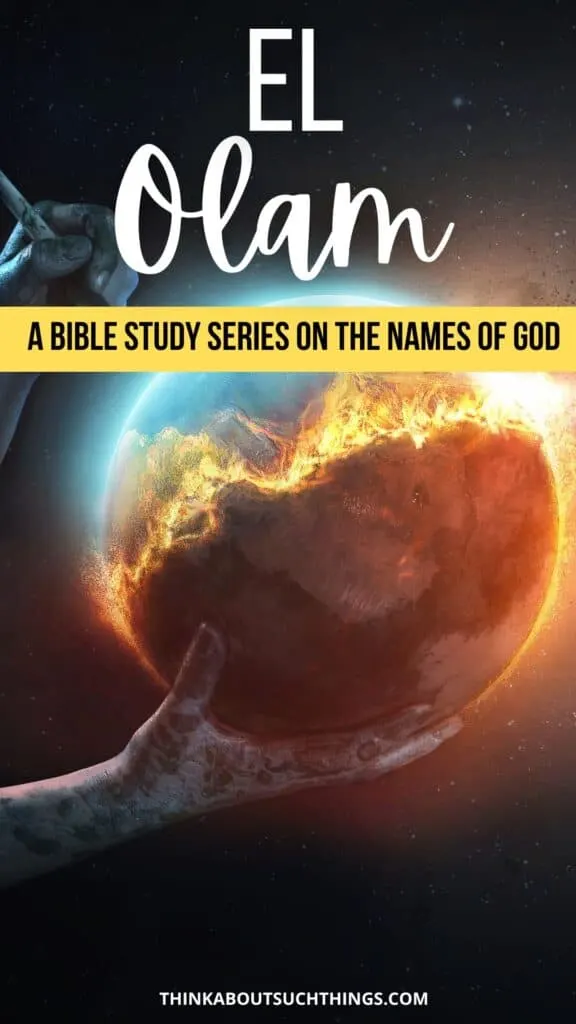
What Does El Olam Mean?
El Olam is one of the many names of God used in the Bible. It is usually translated as Everlasting God or Eternal God.
El Olam is a compound name of God, consisting of two words with different meanings. Let us consider what El Olam means in the original Hebrew text:
- El – The name El is usually translated as “God.” It is a shortened and singular form of Elohim, which means “Strong Creator.” Elohim is used to describe God as the Strong Creator as early as Genesis 1:1.
- Olam – The word Olam is usually translated as “everlasting” or “endless.” The literal translation means “eternal” or “ancient.”
When we use the name El Olam, we say that God is the Eternal Strong Creator, who existed long before time, still exists, and will continue to exist long after time has ended.
One could also translate El Olam as “The Strong Creator of all ages and generations.”
Truly a powerful name, as it entails the past, the present, and the future of all things.
El Olam In The Bible
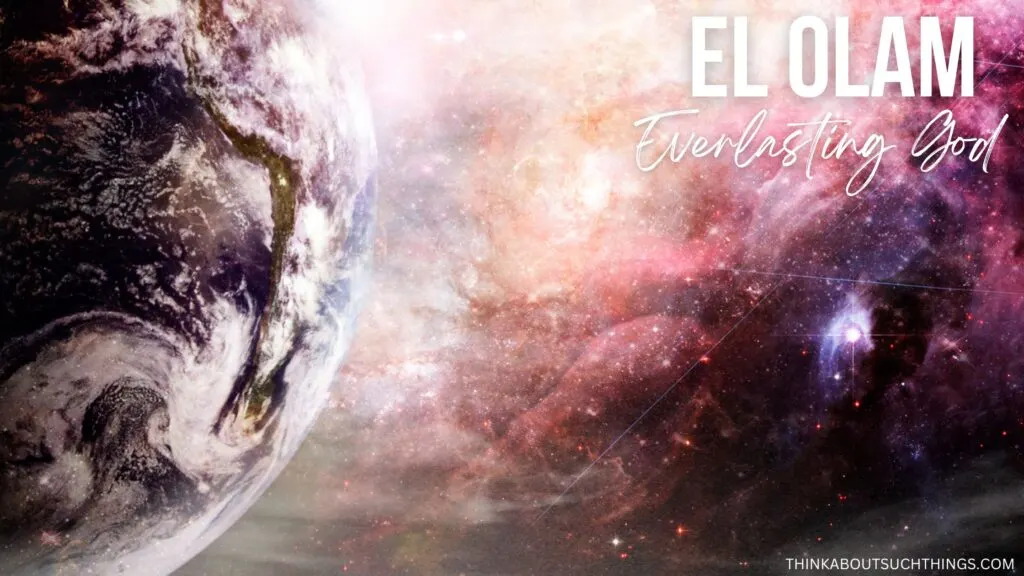
There are two places in the Old Testament where God is referred to as El Olam, the Everlasting God. In the New Testament, the Greek version of El Olam is used once.
This name of God describes one of His many attributes, specifically that He is Everlasting. It is, however, important to look at the context within which El Olam is used to understand its meaning and significance truly.
Abraham Calls On The Name Of El Olam
In Genesis 21, we read about Abraham’s interactions with Abimelech, the Philistine king. Abraham dug a well, which was seized from Abraham by Abimelech’s servants. Abraham reproached Abimelech about this.
Abimelech indicated that he did not know of this until Abraham told him. The two then made a covenant, and Abimelech returned the well to Abraham.
In Genesis 21:33, we read: “Abraham planted a tamarisk tree in Beersheba and called there on the name of the LORD, the Everlasting God.”
Here we see the name LORD, written in all capital letters, indicating the original Hebrew name “Yahweh” or “Jehovah,” followed by “the Everlasting God,” which is the English translation of the Hebrew name “El Olam.”
It is, therefore, clear that Abraham called Yahweh El Olam. But what is the significance of the name of El Olam in this passage of scripture?
God promised Abraham his descendants would be a vast nation, so vast that they couldn’t be counted, and that they would one day inherit the promised land. Abraham stayed in the promised land, Canaan, for a long time, but it was never his.
However, he trusted God to fulfill His promise, so Abraham dug a well there and planted a tree.
Abraham trusted the Everlasting God to keep His promise long after Abraham had passed away. Abraham recognized that God existed before creation and will continue to exist for all eternity.
He saw an attribute of God that transcends natural abilities. That is why Abraham, after he dug a well and planted a tree there, called on the name of the Everlasting God.
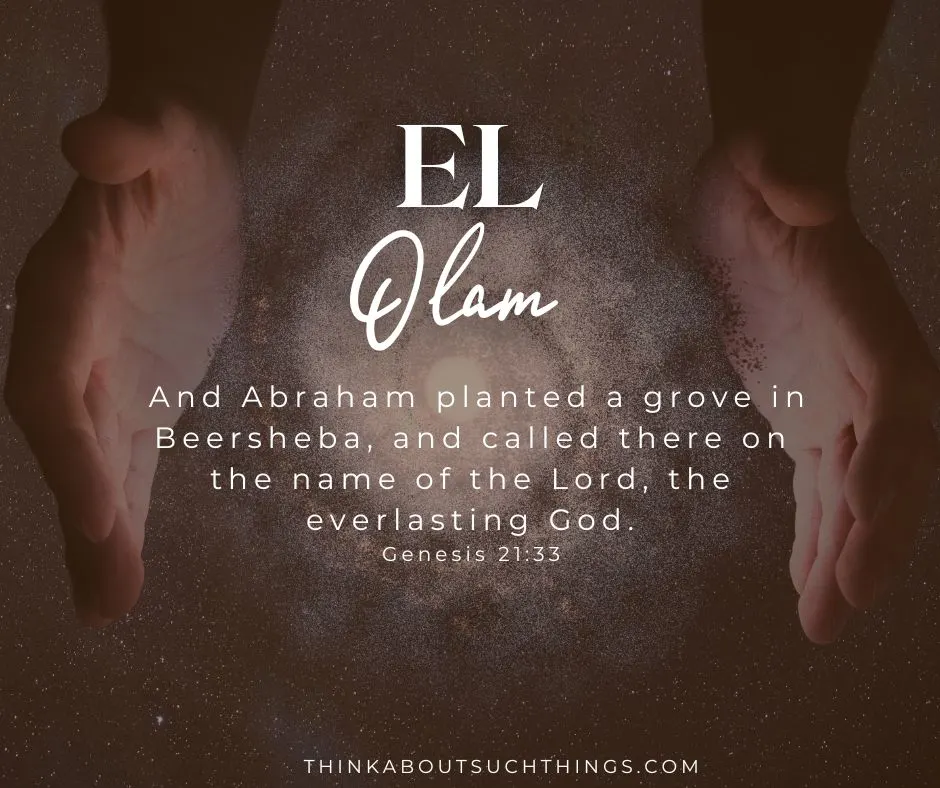
Isaiah Declares The Greatness Of El Olam
Now let’s explore another passage…
God used the prophet Isaiah to bring many words to His chosen people, the Israelites. Isaiah often had to prophesy about the destruction of Israel due to their sinful nature and the fact that they served so many idols.
He did, however, also bring good news. Not only did Isaiah often prophesy about the coming of the Messiah, but he also spoke hope to the people of Israel.
In Isaiah 40, we read how Isaiah first comforted God’s people, then declared the Greatness of God. (Isaiah 40:9-31).
In verse 28, he writes:
Hast thou not known? hast thou not heard? The everlasting God, Jehovah, the Creator of the ends of the earth, fainteth not, neither is weary; there is no searching of his understanding.
Isaiah comforts God’s people in this scripture, giving them hope through tough times.
By referring to “Yahweh, El Olam” or “the LORD, the Everlasting God,” as Abraham did in Genesis 21, Isaiah reminds the Israelites that God is everlasting, which means that His covenant with Abraham is also eternal.
El Olam In Paul’s Letter To The Church In Rome
Let’s hop over to the New Testament now…
As in all the letters he wrote to the first-century churches, Paul’s letter to the Romans intended to build up the church, correct some of their beliefs and doctrines, remind them of what Christ has done for them, and warn them of mistakes that Paul and the other apostles have noticed in some of the other churches.
At the end of his letter, in Romans 16: 25-26, Paul writes:
Now to him that is able to establish you according to my gospel and the preaching of Jesus Christ, according to the revelation of the mystery which hath been kept in silence through times eternal, 26 but now is manifested, and by the scriptures of the prophets, according to the commandment of the eternal God, is made known unto all the nations unto obedience of faith:
Paul wrote about the mystery that he refers to in Romans 16:25-26 and in Ephesians 3:1-13. In Ephesians 3:6, he writes:
This mystery is that the Gentiles are fellow heirs, members of the same body, and partakers of the promise in Christ Jesus through the gospel.
By referring to the Eternal God (El Olam in the Old Testament), Paul links the Gentiles to the everlasting covenant that the Everlasting God made with Abraham.
Paul says that this covenant now applies not only to the Jews, the children of Abraham but the Gentiles too. He also indicates that Jesus Christ was the fulfillment of this everlasting covenant.
What Does El Olam Mean For Believers Today?
There are a few lessons that believers today can take from the knowledge of El Olam, that our God is Eternal!
- We Can Trust The Everlasting God – As Abraham put his trust in El Olam, we can too. Jesus said we should not worry about what we eat, drink, or wear but seek the Kingdom of God, and God will supply whatever we need today. (Matthew 6:32-34)
- The Everlasting God Never Changes – In this ever-changing world, God is one constant thing Christians can hold on to. He’s the Rock we can cling onto, the solid foundation for our faith amidst the storms of life. No matter what’s going on around us, our Everlasting God never changes.
- Gentiles Form Part Of The Everlasting Covenant – Those who aren’t direct descendants of Abraham can now share in the inheritance with those who are through their faith in Christ Jesus.
- God is Omniscient– Being eternal and never having an end nor a beginning conveys that God is omniscient or all-knowing. He knows how things started, what is going on right now, and what will be. He is eternal in all ways and knows the ins and outs of time…and right down to how many hairs we have. (Matthew 10:30-31)
To sum up what we have learned…One of God’s names in the Old Testament is El Olam. This name means “Everlasting or Eternal God” but could also be translated as “the Strong Creator who is the God of all ages.”
Christians today can learn a lot about God’s attributes by studying His Name’s true meaning and the context within which it is used. And I encourage you too…it has a been a beautiful study and has showed me so much of who God is.
More On The Names Of God Series
The Names of God

Melissa is a passionate minister, speaker and an ongoing learner of the Bible. She has been involved in church and vocational ministry for over 18 years. And is the founder of Think About Such Things. She has the heart to equip the saints by helping them get into the Word of God and fall more in love with Jesus. She also enjoys family, cooking, and reading.
She has spoken in churches in California, Oregon, Texas, and Mexico and has been featured in Guidepost Magazine and All Recipes Magazine. Read More…


